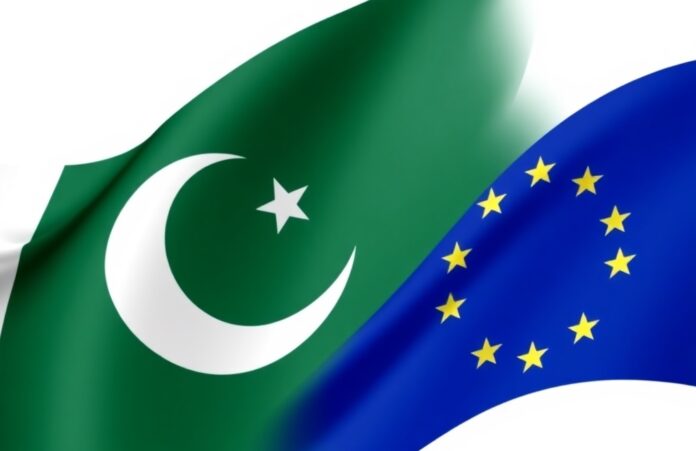The European Union (EU) has expressed concerns over the sentencing of 25 civilians by a military court in Pakistan on December 21, calling the verdicts inconsistent with Pakistan’s obligations under international human rights conventions.
In a statement, an EU spokesperson underscored that Pakistan, as a beneficiary of the EU’s Generalised Scheme of Preferences Plus (GSP+), has voluntarily committed to implementing 27 international core conventions, including the International Covenant on Civil and Political Rights (ICCPR).
“The European Union notes with concern the sentencing of twenty-five civilians by a military court. These verdicts are seen as inconsistent with the obligations that Pakistan has undertaken under the ICCPR,” the statement read.
The EU pointed out that Article 14 of the ICCPR guarantees every individual the right to a fair and public trial in an independent, impartial, and competent court, along with adequate and effective legal representation. The covenant also mandates that any judgment in a criminal case must be made public.
Potential Fallout of Losing GSP+ Status
The GSP+ scheme has been a cornerstone of Pakistan’s trade relationship with the EU since 2014. It provides duty-free or preferential access to Pakistani exports, particularly textiles, which dominate the trade flow to the EU.
In 2022 alone, Pakistan exported goods worth approximately $9.5 billion to EU markets, with textiles making up over 75% of these exports. On average, the EU accounts for approximately 25% of Pakistan’s total exports, making it the country’s largest trading partner. Losing GSP+ would lead to an estimated annual loss of $1.5–2 billion in export revenues.
If Pakistan loses its GSP+ status, it would face tariffs ranging from 6% to 12% on goods entering the EU, significantly increasing costs for buyers and diminishing the competitiveness of Pakistani products. This could result in reduced orders from European buyers, potentially leading to job losses and declining revenue in industries like textiles, garments, leather, and agriculture. Particularly the textile sector which employs over 40% of Pakistan’s industrial workforce.
The EU has frequently stressed that compliance with international conventions underpins the GSP+ scheme. Pakistan has previously faced scrutiny over human rights and governance issues, but a failure to address the EU’s latest concerns could escalate the risk of suspension. The situation could also have adverse effects on Pakistan’s foreign exchange reserves and foreign direct investments in the longer run.
The Military Court Convictions
The military court sentencing that triggered the EU’s response involves 25 civilians convicted for their alleged involvement in attacks on military installations and other unrest following the arrest of former Prime Minister Imran Khan in May 2023.
The incidents included high-profile attacks, such as the storming of the Lahore Corps Commander’s house and damage to other key military properties.
The trials, conducted behind closed doors, have drawn criticism from human rights groups for lacking transparency and due process. The use of military courts for civilian cases has been a contentious issue in Pakistan, with critics arguing it undermines the civilian judiciary’s role and violates international legal standards.
GSP+: A Conditional Trade Partnership
The EU’s GSP+ framework links trade benefits with progress on human rights, labor rights, environmental protection, and governance. Pakistan’s compliance with the ICCPR, which guarantees due process and fair trials, is integral to its continued participation in the scheme.
While Pakistan’s government has often expressed its commitment to retaining GSP+ status, the EU’s concerns over military court verdicts add to a growing list of challenges that could jeopardise this critical trade arrangement.




